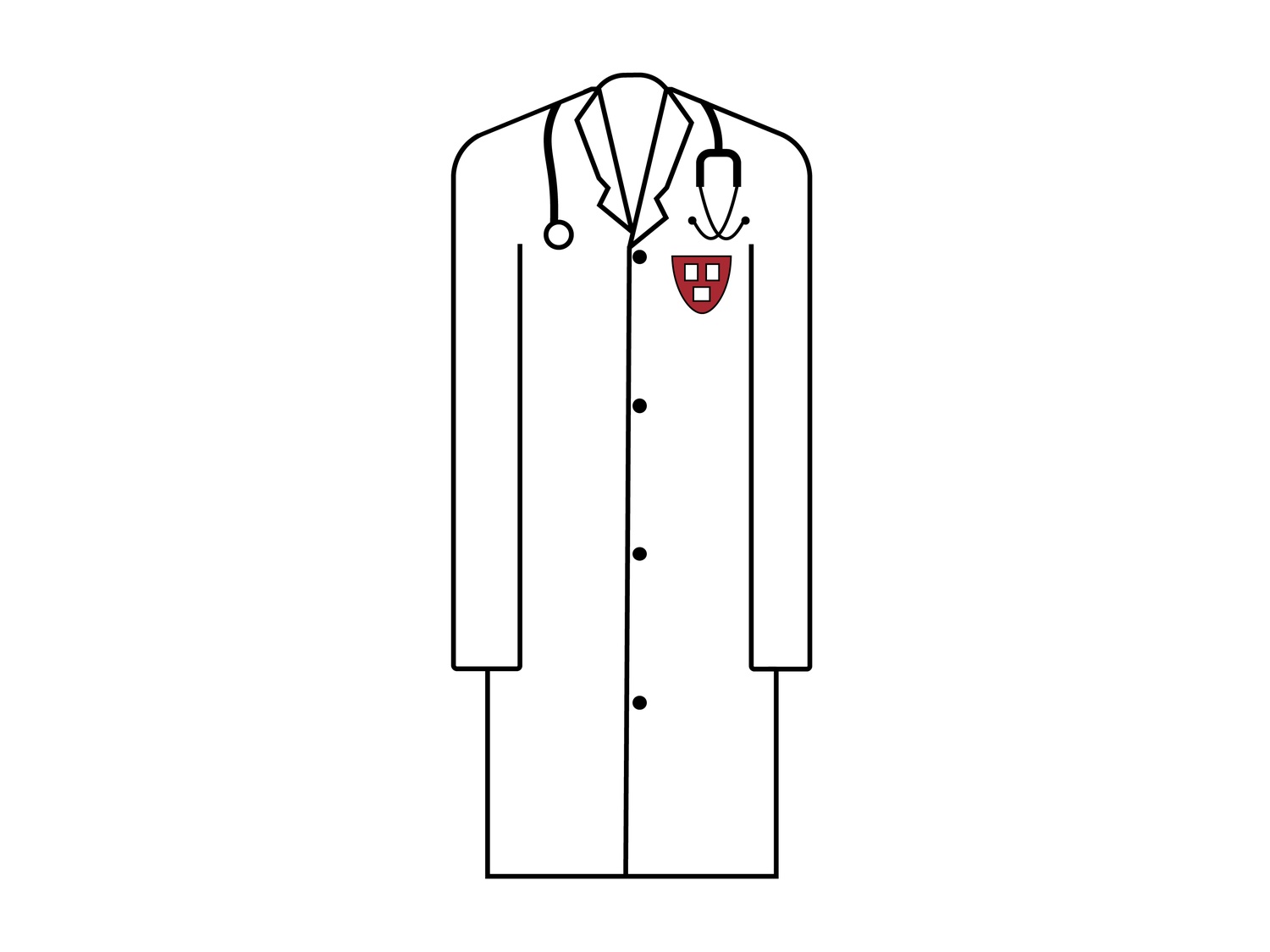
News
Summers Will Not Finish Semester of Teaching as Harvard Investigates Epstein Ties

News
Harvard College Students Report Favoring Divestment from Israel in HUA Survey

News
‘He Should Resign’: Harvard Undergrads Take Hard Line Against Summers Over Epstein Scandal

News
Harvard To Launch New Investigation Into Epstein’s Ties to Summers, Other University Affiliates

News
Harvard Students To Vote on Divestment From Israel in Inaugural HUA Election Survey
MDs in the Ivy League: A New Prescription for University Leadership
A notable shift is unfolding within Ivy League universities: Three recently appointed presidents hold medical degrees.
This trend, kickstarted by The University of Pennsylvania’s new interim president, Dr. J. Larry Jameson, and followed by Harvard’s appointment of Alan M. Garber ’76 and Columbia’s interim appointment of Dr. Katrina A. Armstrong, is a dramatic departure from the traditional leadership backgrounds of law, business, and the humanities.
As universities grapple with increasingly complex challenges amidst public and congressional scrutiny, which have led to the ousting of Ivy League leadership in a number of schools over the last year, universities seem to be rethinking the skill sets needed in their highest office.
The public’s growing trust in physicians to navigate crises can be traced back to the Covid-19 pandemic, when figures like Dr. Anthony S. Fauci became household names, and the expertise of healthcare professionals was thrust into the global spotlight. This history may explain why universities are increasingly looking to those with scientific training to lead, particularly at a time when universities are not just institutions of learning but key players in global public health issues.
Garber’s appointment as Harvard’s president exemplifies this transition. With his dual expertise as a physician and economist, Garber’s diverse experience is particularly suited to today’s educational environment, where universities are not only intellectual hubs, but also play an active role in solving societal issues.
Garber also has extensive experience in healthcare advocacy, from serving as director for Stanford’s Center for Health Policy to chairing a committee at the Centers for Medicare and Medicaid Services.
Garber represents a new type of leader, one who can bridge multiple disciplines and ensure that Harvard remains relevant in both academic and real-world debates. Moreover, to Harvard’s benefit, Garber’s multifaceted educational background may restore public trust and improve the University’s strained reputation.
The skills that medical professionals bring — problem-solving, data-driven decision-making, and team-based collaboration — are undeniably valuable in the context of higher education. The precision and rigor that come with medical training provide a critical framework for tackling issues like public health crises, environmental sustainability, and socioeconomic inequality.
Medical professionals are trained to analyze data carefully, make evidence-based decisions, and work collaboratively across specialties — skills that align well with the interdisciplinary approaches that today’s universities are increasingly adopting. Ultimately, Garber’s potential to bridge diverging academic perspectives and lived experiences at Harvard could help steer the course and revitalize the campus environment.
But there are still lingering risks. Our physician leaders must remember that universities are not just scientific institutions — they are meant to foster a broad intellectual environment that encompasses not only data and analytics but also creativity, ethics, and social responsibility.
Under “medical” leadership, institutions risk leaning too heavily into a technocratic mindset — one that prioritizes quantifiable solutions over the more abstract insights offered by the arts, humanities, and social sciences. These fields are essential for nurturing critical thinking, moral reasoning, and an understanding of the human experience in students, all of which play a crucial role in addressing the very issues we are tasked with exploring and perhaps solving.
The increasing spotlight on universities from the media, government, and general public also brings heightened pressures to the role. Higher education is viewed by many as an elite, insular sphere, and the appointment of highly credentialed medical leaders may exacerbate the perception that universities are out of touch with the concerns of everyday Americans.
Leaders like Garber risk widening the gap between academia and the broader public, fueling criticism that universities are becoming too disconnected from perspectives outside the scientific and academic elite.
The future of Ivy League universities is more uncertain than ever, and as Garber and his newly appointed peers assume their roles as presidents, significant challenges await.
For decades, institutions like Harvard have sought leaders who value interdisciplinary collaboration and can balance a commitment to cutting-edge research with a broad liberal arts education. Today, they also need leaders who can navigate turbulent political waters, defend academic freedom, and ensure that campuses remain vibrant spaces for diverse ideas and viewpoints.
As Harvard, Columbia, and the University of Pennsylvania enter this new era of leadership, the effectiveness of MD-degree-holding presidents in upholding these tasks will be crucial.
For now, higher education still stands at a crossroads, with the responsibility on our new leaders to diagnose and treat the challenges of modern academia. I hope they rise to the occasion — their success will shape the future of our campuses and our place within them.
Alvira Tyagi ’25, a Crimson Editorial editor, is a Neuroscience & Government concentrator in Kirkland House
Want to keep up with breaking news? Subscribe to our email newsletter.

